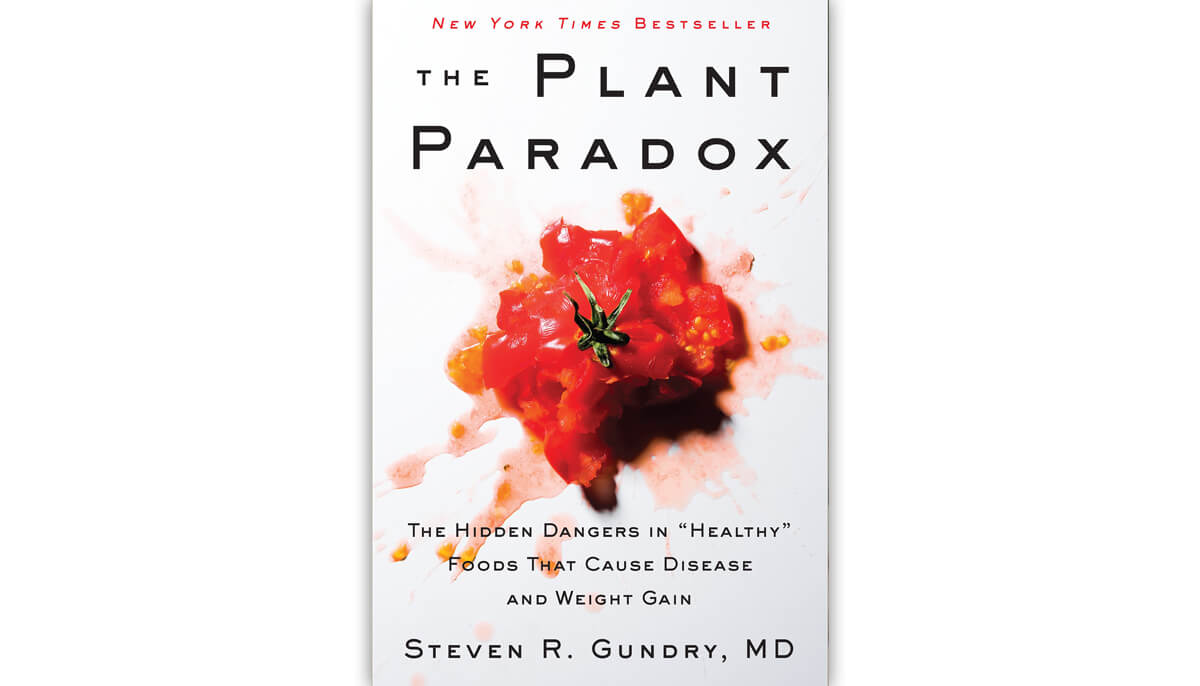Nutrition experts weigh the pros and cons of this popular diet book

By: Kristal Shelden, MPH, RDN
The Silicon Valley Registered Dietitian Nutritionist’s Book Club met to discuss Dr. Steven R. Gundry’s book, The Plant Paradox. The basis of this book is that certain foods that are typically considered to be nutritious and health enhancing are actually harmful. These foods include wheat, beans, peanuts, peas, legumes, lentils and tomatoes, just to name a few. This claim is allegedly due to the lectins found in these foods.
What are lectins? Lectins are a type of protein that are abundant in raw legumes and grains. Once ingested they can bind to other molecules, notably carbohydrate molecules. According to The Plant Paradox the lectins then bind to cells, which is a major cause of illness.
The book goes so far as to say people are “at war with plants,” and the paradox is that people need to eat some plants since they contain a host of essential nutrients. The book teaches the reader exactly which plant foods to eat, which to avoid and how to prepare certain foods to reduce the impact of lectins.
On the positive side, the book contains many testimonials of people who feel better after following this diet. One can't argue with people feeling better. It is possible that the current understanding of human nutrition is still not adequate to explain why some foods are health-enhancing in one individual yet inflammatory in another. It is also true that the diet advocated in The Plant Paradox is low calorie, low in sugar and does not include highly processed foods. These are all changes that can help many people feel better.
Gundry’s book also recommends using certain spices to reduce inflammation. Book club members shared first-hand experiences of successfully using turmeric, which contains an anti-inflammatory compound called curcumin, to reduce symptoms of inflammation. However, individuals should still consult with a health professional before adding supplements to their regimen since some supplements impact the effectiveness of certain drugs.
As dietitians, recommendations to reduce vegetable intake naturally rub us the wrong way. The overwhelming consensus of nutrition studies finds that a plant-based eating pattern, which includes some animal-sourced foods, is health-enhancing. The Dietary Guidelines for Americans recommends three different eating patterns, and all recommend eating a wide variety of plants.
Population studies show people who follow plant-based diets (five or more servings per day of fruits and vegetables plus two or three servings of whole grains) have better health. The citations used in this book often referenced very small animal studies, and these outcomes cannot be generalized to human populations.
Gundry’s recommendations include a very expensive supplement program, and the author conveniently sells these needed supplements—creating a financial conflict of interest. Buyer beware. As a general philosophy, we recommend getting nutrients from foods rather than supplements.
The protein recommendation in the book (0.37 grams/kilogram/day) is much lower than the Recommended Daily Allowance (RDA) of 0.80 grams/kilogram/day. Newer scientific studies suggest that the optimal protein intake for the elderly is greater than the RDA.
This diet does not align with consensus science and omits many foods that are nutritious and well tolerated by the majority of people; therefore, our book club cannot recommend this book. Finally, this diet is complicated. One thing we have learned as nutrition educators is that complicated eating regimens are not sustainable over time. We suspect most people would abandon this eating plan after the first few weeks.
Do you want to know more about lectins? Check out this video from NutritionFacts.org. To learn more from registered dietitian nutritionists on timely nutrition topics, subscribe to the Let's Eat Healthy Ask a Nutritionist video series.

Kristal Shelden, MPH, RDN
Kristal Shelden, MPH, RDN
Kristal Shelden is Dairy Council of CA’s advocacy manager, driving the organization’s thought leadership strategies and communications.
In today's society, it's vital to engage teenagers in experiential nutrition education to guide them toward making nutritious food choices.

At Dairy Council of California, we understand the importance of culturally diverse foodways and the role dairy plays in these cultures.

Subscribe to our blog to stay up to date on the latest news, products, and more.